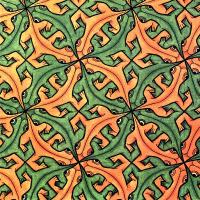글: 20
언어: English
cFlat7 (프로필 보기) 2014년 2월 19일 오후 1:38:38
Rugxdoma (프로필 보기) 2014년 2월 19일 오후 4:03:51
sudanglo:And nowadays most educated orientals will have some knowledge of a European language, most likely English.I think many Chinese, even if they know quite much of English, still may have misconceptions about exactly those things that are common to the European languages and are therefore not stated in the 16 rules. Perhaps one could extend the rules by 5 or so new rules, which would state clearly what has often been tacitly understood. Some of the points may be implicit in the Ekzercaro, but needs some more explanation. I myself would appreciate such a minimalist approach to Esperanto, which is at the same time effective for all. I once learned Esperanto using the Sxlosilo, and my grammer has not developed much since then, in spite of the fact that I have read the Detala gramatiko and other texts. I would like people in other continents to have access to a similar very condensed learning aid.
So maybe the 16 rules and the Ekzercaro are still sufficient, to grasp the essential grammar of Esperanto.
erinja (프로필 보기) 2014년 2월 19일 오후 7:43:32
Rugs are "oriental". People are "Asian".
bartlett22183 (프로필 보기) 2014년 2월 19일 오후 9:02:53
Rugxdoma:A long time ago I made for myself a (small type) four page summary, which includes a restating of the Sixteen Rules and some other matters. It is in English, of course, but I put it up here: E-o quick reference. Strictly for the written language, as I did not describe the pronunciation, and it does not describe everything or give examples. But it is a little more than the Sixteen Rules if I just had to give an English speaker a few pages.sudanglo:So maybe the 16 rules and the Ekzercaro are still sufficient, to grasp the essential grammar of Esperanto.I once learned Esperanto using the Sxlosilo, and my grammer has not developed much since then, in spite of the fact that I have read the Detala gramatiko and other texts. I would like people in other continents to have access to a similar very condensed learning aid.
jismith1989 (프로필 보기) 2014년 2월 19일 오후 10:52:33
erinja:Good heavens, Sudanglo.To be fair to Sudanglo, even though I'm sure he's probably not averse to using offensive language, "Asian" in the UK generally implies "South Asian" (i.e. Indian or Pakistani), since there's a much larger population of people from those countries here. Whereas in America it seems to imply "East Asian" for similar reasons.
Rugs are "oriental". People are "Asian".
I think Oriental as a noun can still be fairly offensive, and is definitely a bit antiquated (with connotations of imperialism or exoticism and whatever else), but I think it's probably more offensive in the US, and isn't always offensive in the UK. There are probably better terms, but I guess he was just trying to use a more specific term than Asian and a less specific term than Chinese, I don't think he was trying to offend.
http://en.wikipedia.org/wiki/Orient#British_Englis...
sudanglo (프로필 보기) 2014년 2월 19일 오후 11:07:50
Good heavens, Sudanglo. Rugs are "oriental". People are "Asian".Cor blimey, missus! What next? That 'Westerner' is politically incorrect?
Bemused (프로필 보기) 2014년 2월 20일 오전 6:29:40
sudanglo:Where I come from to describe someone as "Oriental" used to be in no way offensive, it was actually a slightly more polite way of referring to someone than calling them "Asian".Good heavens, Sudanglo. Rugs are "oriental". People are "Asian".Cor blimey, missus! What next? That 'Westerner' is politically incorrect?
Now the forces of puritanical censorship/ political correctness are going one step further, a person may be described as "of Asian appearance" but not as "Asian".
erinja (프로필 보기) 2014년 2월 20일 오후 6:08:55
People can complain all day long about the annoying PC requirements of today, but to me it's worth keeping up with the current accepted terminology, if keeping up with terminology means that I can avoid looking bigoted or retrograde.
I know usage is different in different countries but personally I've never seen the BBC refer to East Asians as "Oriental", so clearly this term isn't in widespread print use, at the very least.
sudanglo (프로필 보기) 2014년 2월 21일 오후 12:47:35
People can complain all day long about the annoying PC requirements of todayOh, that's alright then, and nice to know you think they are annoying.
I've never seen the BBC refer to East Asians as "Oriental"Actually the BBC, or at least the World service, (all due respect) is not immune to language errors. Like 12 hours GMT for 12 o'clock, or told to our reporter instead of told our reporter.
And, obviously, the BBC, being a public broadcaster, may submit in their more formal offerings (ie not in drama or comedy) to certain choices in the language used, that do not reflect the way the populace at large speaks.
yugary (프로필 보기) 2014년 2월 26일 오전 6:51:36






